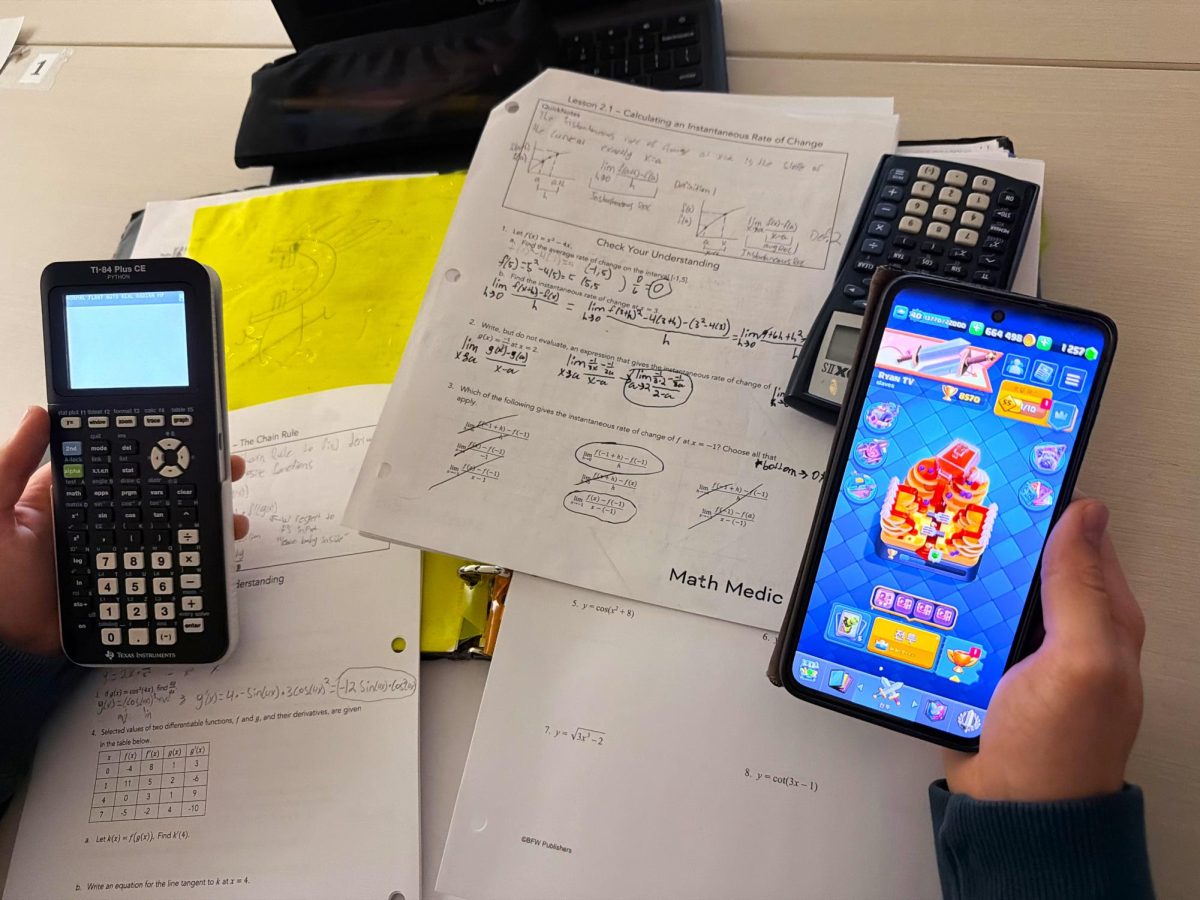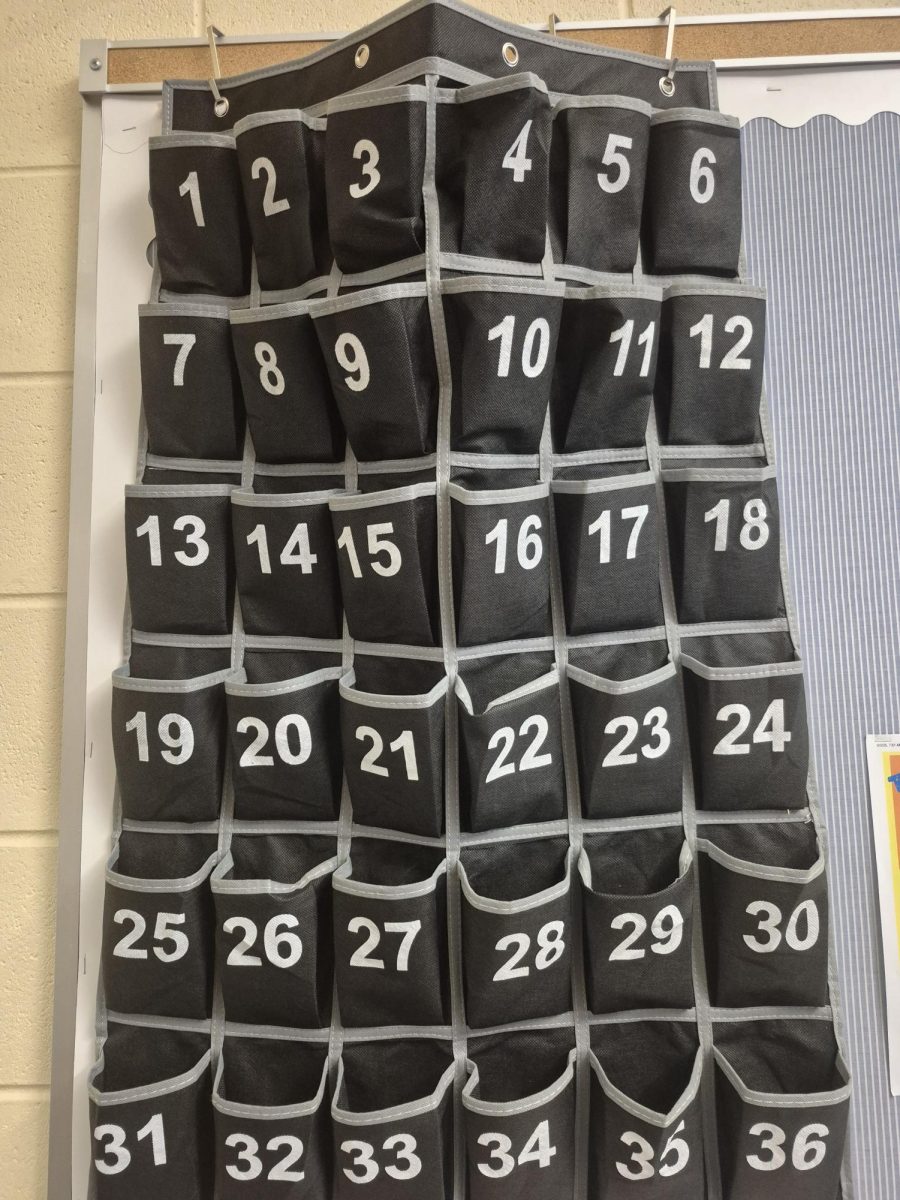
When Instructor Steven Bowyer headed off to college he knew three things for certain, there would be hard work, he would have to be responsible, and the freedom would be nice. Despite what background knowledge he had, Bowyer still had surprises in life after high school, as did other teachers. Several WOHS teachers weighed in on their experiences after high school, providing words of wisdom for current students.
Beginning the Experience
Trying to find a college can be intimidating. There are many aspects to consider, and the criteria vary from person to person. College visits through the school or with students’ families is a great way to get started. Instructor Heather Thomas suggested taking advantage of the internet, as she did not have the opportunity to utilize this resource when she began her college search. Bowyer shared the steps he took when searching for a college. “The first thing is get a sense of what your grades are and what schools you’d be eligible for, then location and where you’d want to be and live and whether they offer programs that you want to go into.” Students knowing what they want, whether in terms of location, size, or program, can help narrow down the search and make the process easier.
However, even if one is unsure, college will work out. “I truly believe that people make the college work for them. They offer all kinds of opportunities for you to make it work. If you need stuff to do all the time it’s hard at small schools. Find a good school with a good program if you know what you want to do and from there you make it work,” Instructor Paul McNitt said. Despite the idea that students must find the ‘perfect college,’ college will work out for the better if students are willing to make their circumstances work for them. Society romanticizes life, making us believe everything must be perfect. However, people can make something perfect, or rather, close to perfect, by themselves. By making the most of the circumstances of students’ colleges, students make the college ‘the one.’
Academic
One surprising aspect relating to academics in college was the immense workload. “You can be told three hours of homework for every hour in class but when it actually hits you go ‘oh goodness’,” McNitt said. Despite hearing about the amount of work required in college, McNitt did not realize just how much that was until he was actually dealing with the workload. Besides the workload itself, the type of work is also a new challenge. “There weren’t always specific assignments, you just did the reading and had questions about it on the test. And you didn’t have a teacher going over everything,” Thomas said. Most of the work is independent and there is no longer a teacher to guide students each step of the way. “Academically there was a huge change in me being more independent as a learner,” Thomas said.
Another difficulty is balancing work with homework. Managing time is vital. “For most of college, I worked 30 hours or more a week. Sometimes as many as 50 hours. I just really had to maximize my time,” Thomas said. Thomas had to take advantage of every moment to do homework, sometimes losing out on sleep to make sure everything was done. “I worked pretty much all through college. I coached swimming and worked as a manager at a restaurant – Village Inn in Kentwood. I made sure one of the things I always did was take an eight am class each semester to get class done early to have time to work in the evening and still have time for homework in the afternoon,” Bowyer said. Bowyer planned ahead and knew that in order to balance school and work, he needed to take earlier classes. The sacrifice to have an earlier class allowed him to organize his time in a way that worked best for him. Instructor Heidi Libner said “I tutored a few days a week for Upward Bound throughout the school year, was a timer for swim meets during the swim season, and recorded statistics at the women’s basketball games. To balance a job with classes, I had to make sure I worked on schoolwork for some classes ahead of time.” A lot of college students also work. Although the task of college and work may seem daunting, students can and will figure out a way to manage their time and balance classes and work.
Social
College means meeting new people. Students must find new friends, a new group to spend time with, new study buddies, and a new support system. Although change is not always fun, college can be a refreshing start for students to meet new people. “Socially there was a change in the freedom I had to be myself. In high school, people had a history of you and had locked you into ‘this is the person you are.’ I was more free to participate,” Thomas said. College is a chance to reinvent one’s self. Students’ pasts no longer define them. “I found it much easier to make friends because you’re surrounded by people all the time. You have to get involved and make sure you take the time to get to know the people around you,” Thomas said. Living with other students forces one to become friends with them. However, conflicts do occur. “When you’re living with other people you have to be very open and honest. I remember a huge blowout over washing dishes. It was the stupidest thing. I think all the stress had just built up and we took it out on each other,” Thomas said. Experiences like Thomas’ are a good opportunity to learn and grow as a person.
Additional Advice
After beginning college, students have to be independent. Thomas learned that just because she had freedom doesn’t mean she could always take advantage. “The biggest wake-up call for me going from the upper peninsula to Michigan State was trying to balance freedom and responsibility. Yes, I could ditch class but then I had to pay the consequences. I realized just because I have more freedom doesn’t mean I can take all the freedoms,” Thomas said.
Another area to be in control of is money. A lot of college students become fully independent and have to pay for their own groceries, gas, and other expenses. “Budgeting is always a work in progress, but I definitely overspent in college and then realized a few years after how to balance it out,” Thomas said. However, not everyone has issues with figuring out how much one can and cannot spend. “It’s just something you do. You know you figure out how much income you’re gonna have and then figure out rent and car payment and food and you just come up with a budget then learn from it and improve as you go,” Bowyer said. Although there are always hiccups, budgeting is something everyone has to figure out sooner or later. “I have always been very conservative when it comes to spending money, so I never found myself spending too much,” Instructor Heidi Libner said.
For those who do not become fully independent, budgeting is even less of a challenge. “It wasn’t difficult budgeting because we [my wife and I] are both from fairly conservative families in terms of spending. And our parents had helped already so we already had cars that worked,” McNitt said. Although McNitt did receive financial aid from his parents throughout college, he was still very much independent, and discovered that there was no longer someone to ‘hold his hand.’
Bowyer also recognized the independence required in college. “I think the biggest difference is you just have to learn to manage your time different, you know. It’s not as structured anymore. You might have class one day and not the next so just learning to budget time,” Bowyer said. Budgeting money was not the only kind of budgeting, as Bowyer pointed out time was another feature to be considered. “Get involved with something. Just like high school the more you make of it the better. I ended up living at home and I wish I had just gone and done the college experience the whole time. So embrace it and enjoy it and then move on,” Bowyer said as some general advice.
McNitt also had some words of wisdom to pass on. “People gotta realize they got to stop thinking about what’s coming and live and love the moment,” McNitt said. College is exciting, and so is life on one’s own. Despite that, it is important to enjoy each part of life as each event happens, instead of constantly looking to the future thinking what’s next will be better. One cannot wait for life to happen, one must make life happen.
College is hard. Students have to learn to manage their time and their freedoms. Despite problems that occur and the learning curve, college is a worthwhile experience that prepares students for life on their own. These WOHS teachers shared their experiences and hopefully encouraged high schoolers to make the most out of life after high school.






